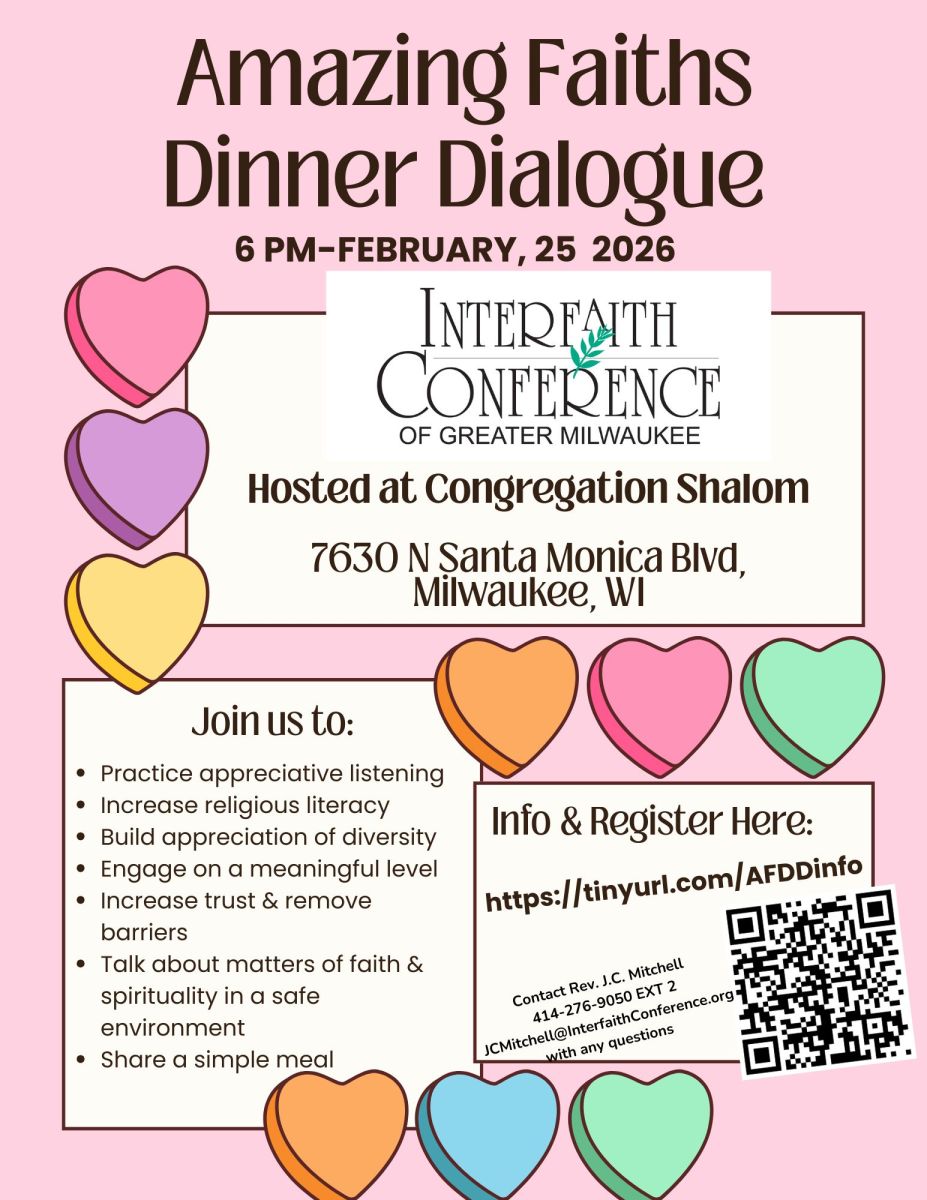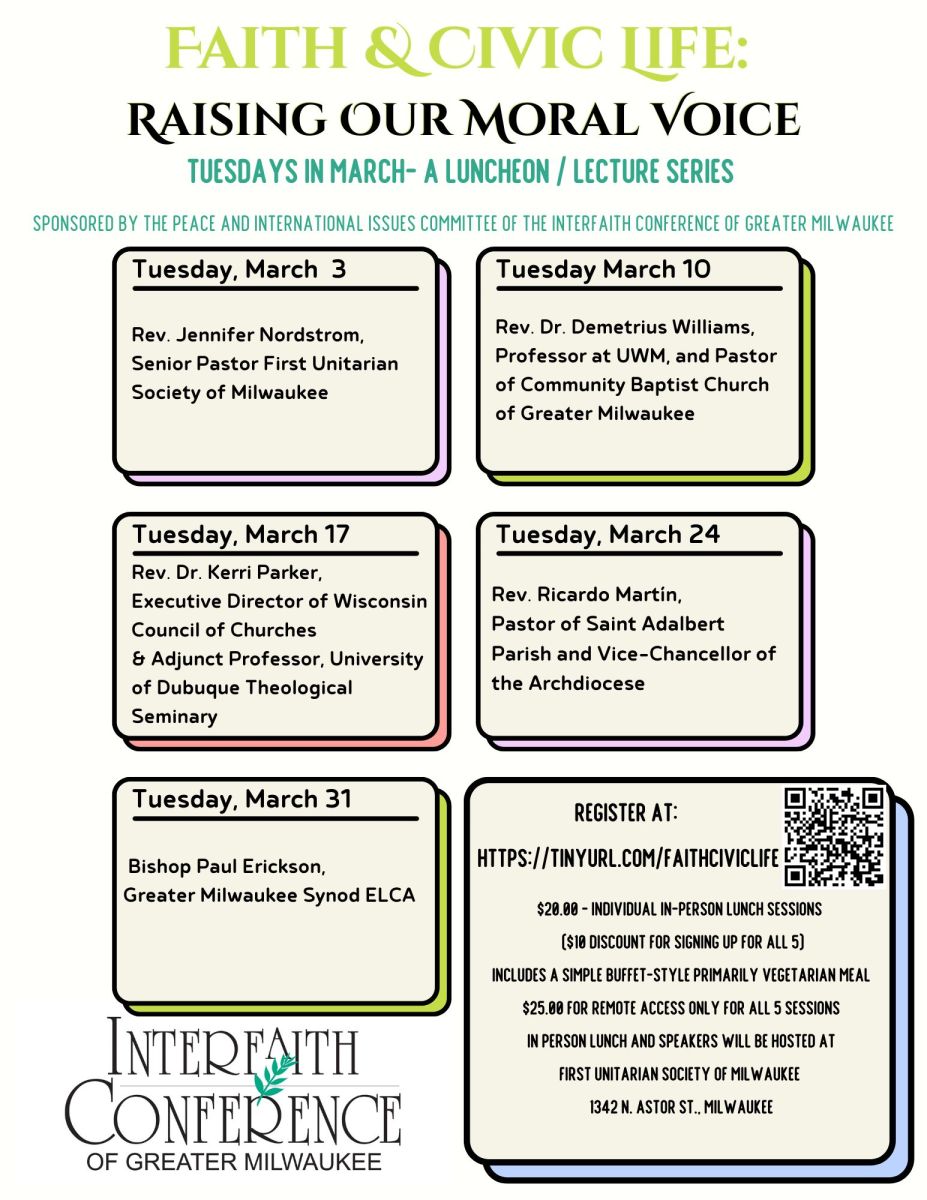RESTORATIVE PRACTICES
Interfaith Restorative Practices Coalition
Restorative practices have their roots in indigenous cultures. Their use ensures that all voices are heard and respectfully listened to, for they honor the dignity of each one of us. People are coming to recognize restorative practices as a way to form trusting relationships, build community, and manage conflict that can be implemented in any venue.
The number of ways to apply restorative practices is as varied as the people and the groups that they form. The implementation of restorative practices as repair harm circles has come to be known as Restorative Justice. This practice addresses the heart of the issue – our way of thinking.
In 2000, this coalition was formed under the name of the Restorative Justice Committee of the Interfaith Conference of Greater Milwaukee. In its early years, the committee was largely composed of volunteers in the newly formed Community Conferencing Program of the District Attorney’s Office of Milwaukee County. Its members were part of changing the way our society thinks about the question of how to treat wrong-doing. The belief that punishing and ostracizing are the ways we must treat wrong-doing is evident not only in our criminal justice system, but in our homes, schools, churches, and in the community at large.
That was the beginning, but it did not end there. In 2015, the Restorative Justice Committee officially changed its name to the Interfaith Restorative Practices Coalition. As restorative practices spread, all who implement restorative practices whether in their jobs or as volunteers have been and continue to be welcomed to the coalition. For its members and to others who implement restorative practices in the greater Milwaukee community, the coalition offers an opportunity to network and to support one another.
The coalition has met regularly since its inception, first at the Interfaith office and then at local coffee shops, the most recent being Sherman Perk. Early in the pandemic, coalition members met via Zoom, and then, for awhile no meetings were held. Still, networking has continued to happen via the internet, and connections continue to be made. In recent months, one organization sought training in restorative practices for its employees, and found it by reaching out to this coalition. Another restorative practices practitioner reached out to this network in order to find others to collaborate with her in developing a community-wide program using restorative practices. These are the kinds of connections that this coalition facilitates, and the kind of connections that are helping restorative practices to grow and spread throughout the greater Milwaukee area.
The breadth of possibilities for the implementation of restorative practices is evident in the membership of the Interfaith Restorative Practices Coalition. Its members include: Alliance School Restorative Practices Program, The Benedict Center, the Community Conferencing Program (of Milwaukee District Attorney Office), Escuela Verde, The Healing Center, Mediation and Restorative Justice Center of Wisconsin Community Service, Milwaukee Center for Children and Youth, Milwaukee Public Schools Success Center, Peace Learning Center, Project Kindred, Project Ujima, Restorative Circles LLC, Safe and Sound, Sherman Park Neighborhood Association, Victim/Witness Advocate (of Milwaukee District Attorney Office), Youth Justice Milwaukee, The Zeidler Group, as well as members of faith communities and community residents in the greater Milwaukee community. And the list continues to grow
Upcoming Events
Restorative Practices Coalition meets on the last Tuesday of each month from 12:30 - 2:00 p.m. at Redeemer Lutheran Church, 19th St. and Wisconsin Avenue. Contact rpmilw@gmail.com for more information. The next meeting is scheduled for Tuesday, September 26.
Circlekeeper Gathering This monthly gathering welcomes all people from our wider Milwaukee area community who have been educated in Restorative Practices, so we may consistently gather, learn from each other’s experience, and be part of a supportive community of people who are keeping circles within our school, organization and/or community. This meeting is on hiatus until further notice.
IRPC Programs
Restorative Practices for Congregations brochure
Read the first in a series of articles that relate restorative practices to the sacred scriptures of the congregations that are part of the Interfaith Conference.
Restorative Practices for the Church
For more information, email rpmilw@gmail.com
Articles
Read this article to learn more about restorative practices at Peace Learning Center
Restorative Practices Enhance the Life of Youth and the Community
Videos
Watch this video to learn more about restorative practices at Alliance School.
Watch this video to learn more about the difference between retributive justice and restorative justice.
Watch this video to see the impact of a repair harm circle in the life of a young offender.


